How a boy from Vietnam became a slave on a UK cannabis farm
ANOTHER REASON TO LEGALIZE/DECRIMINALIZE
CANNABIS IN THE UK
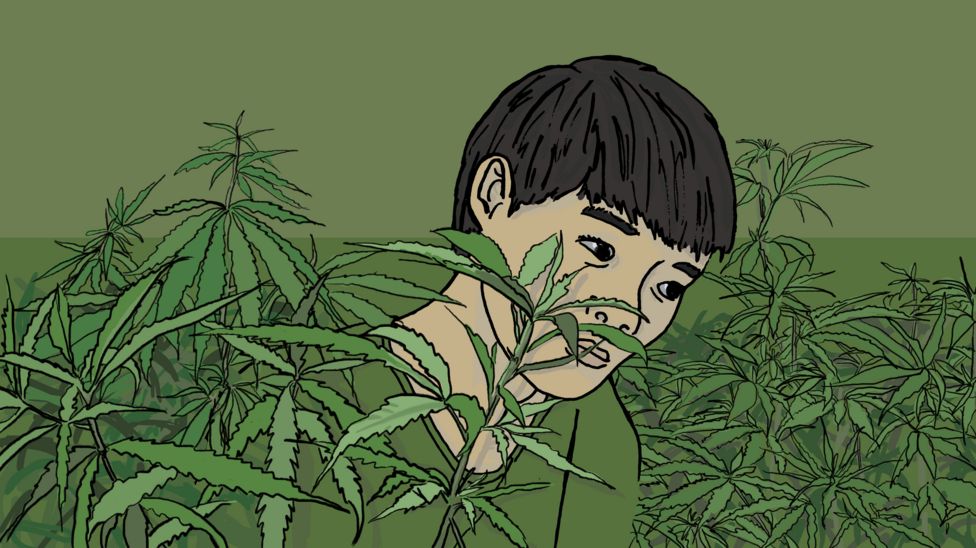
It was a horrifying death for the 39 Vietnamese nationals found in the back of a trailer in an industrial park in Essex, in October last year. The story shone a light on the subterranean world of people smuggling and human trafficking, reports Cat McShane, specifically the thriving route between Vietnam and the UK.
Ba is slight for 18. His body shrinks into a neat package as he recalls his experiences. We're sitting in a brightly lit kitchen, a Jack Russell dog darting between us under the table. Ba's foster mum fusses in the background, making lunch and occasionally interjecting to clarify or add some detail to his account of his journey here from Vietnam. She wants to make sure his story is understood.
Ba's lived here for nearly a year. He was placed with his foster parents after being found wandering, confused and scared, around a train station in the North of England, with just the clothes he was wearing. "You feel safe now though, don't you?" his foster mum asks, needing affirmation that the mental and physical scars Ba wears will heal with enough care.
His story is one both extraordinary, and typical of the growing number of Vietnamese men and women recognised as being potential victims of trafficking in the UK. For several years, Vietnamese have been one of the top three nationalities featured in modern slavery cases referred to the National Crime Agency, with 702 cases in 2018.
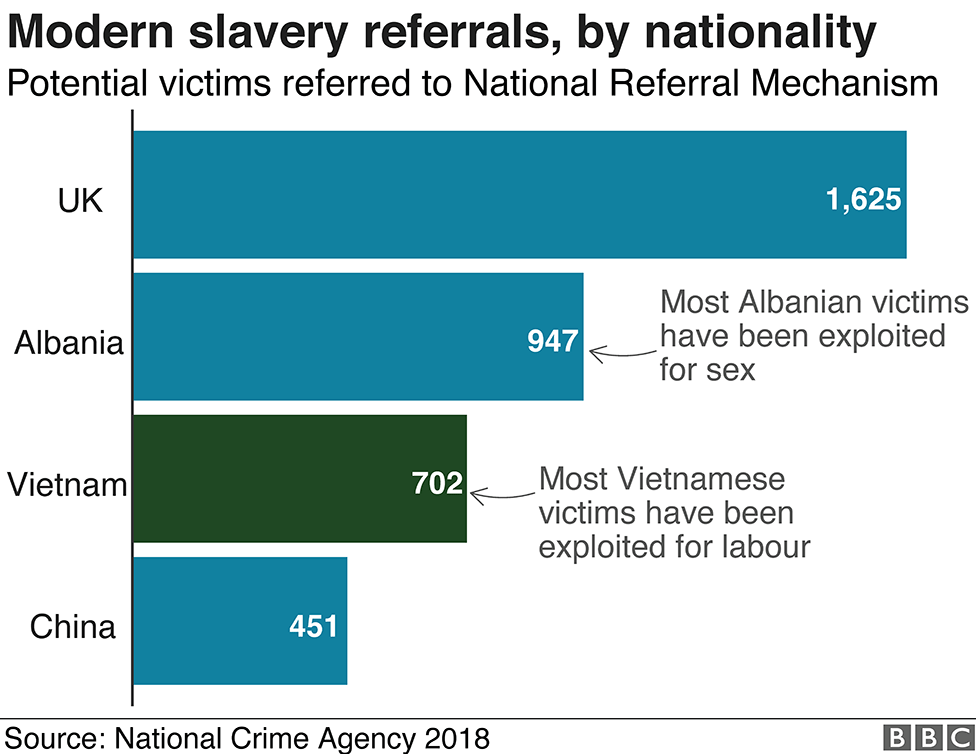

The Salvation Army, which supports all adult victims of modern slavery in the UK, says the number of Vietnamese nationals referred to them over the last five years has more than doubled. It's estimated 18,000 people make the journey from Vietnam to Europe each year.
Ba believes it was a Chinese gang that trafficked him to the UK. He was kidnapped off the streets of Ho Chi Minh City, where he was a street child, an orphan who slept in the bend of a sewage pipe. He sold lottery tickets for money, although older men sometimes beat him and grabbed his takings.
A 2017 Unicef report described Ho Chi Minh City as "a source location, place of transition and destination of child trafficking". And a 2018 report by anti-trafficking charities said numerous trafficked Vietnamese children had reported being abducted while living on the streets.
That's what happened to Ba. "An older man told me that if I came with him, he could help me earn a lot of money. But when I said no, he put a bag over my head. I couldn't believe what was happening," he says. He was then bundled into a small van, bound as well as blindfolded, his shouts stifled.
Somewhere along the way, Ba's captors changed, and now he couldn't understand the language they spoke. When they finally came to a standstill and the bag was removed, Ba found himself in a large, empty, windowless warehouse in China, and was told to wait. "I knew they were preparing to send me somewhere to work," he says.
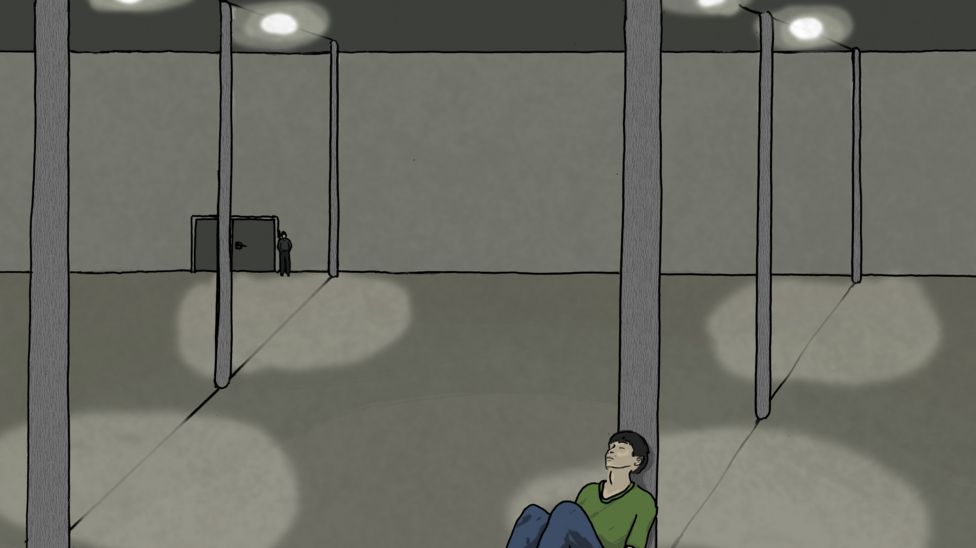
During the months that Ba was held there, a guard regularly beat him. "I don't know why," Ba says with a shrug, "there was no reason." When he was caught trying to escape, his punishment was far worse than kicks and punches - the guard poured scalding water over his chest and arms.
"It was agony. I was shouting at him to stop but he didn't listen," he says. Ba became unconscious with the pain. "I just lay still for days. I couldn't walk. It was painful for a very long time."
His foster mum adds that his scarred skin is tight all over his body, and a permanent reminder of what happened to him.
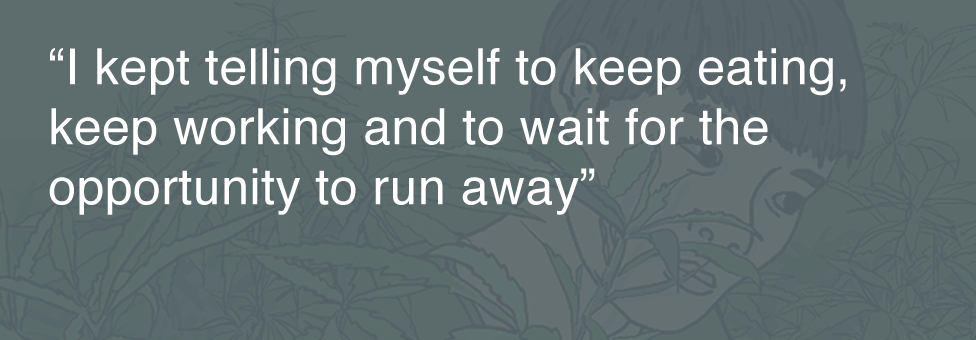
Ba was then moved to the UK in a succession of trucks. He remembers the silence of the final container, where the human cargo hid among boxes. The quiet was broken only by the rustling of cardboard being ripped up, to be used as insulation from the gnawing cold. His long-sleeved top offered little protection.
"I was always scared on the journey, and very tired. I couldn't sleep because I was so worried. I didn't know what was happening to me. I wasn't told anything about where I was going."
- Briefing: Mass migration into Europe from the Middle East, Asia and Africa has had a profound impact on Europe
In fact, Ba was destined to work as a "gardener" in the UK's illegal cannabis trade - which is valued at around £2.6bn a year. In an abandoned two-storey house surrounded by woodland, he was locked-up and told to look after the plants that grew on every available surface. It was a mundane vigil of switching lights on and off over the plants at set times and watering them every few hours.
But it was also punctuated by violence. When a plant failed, Ba was starved and kicked by a Chinese boss, who would aim for the burns on his chest.
Ba never received any payment for his work, and wasn't told he was earning to pay off his fare to the UK. He was a slave.
"How did I keep going? I kept telling myself to keep eating, keep working and to wait for the opportunity to run away," he says.
He finally escaped by smashing an upstairs window, and jumping to the ground. Then he ran for as long as he could.
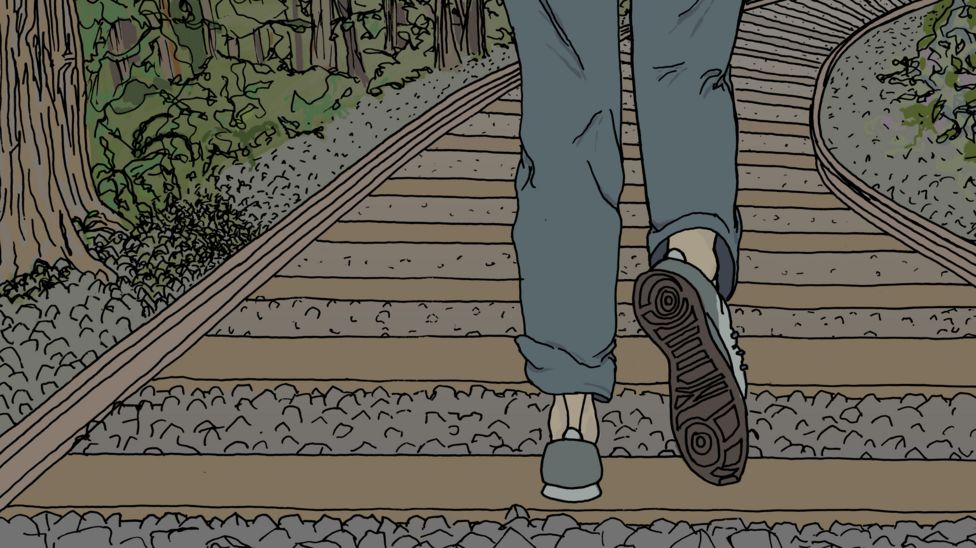
"I was frightened, depressed and panicking. If I had been caught I would have been beaten even worse," Ba says. But he had to take that risk, because his life in the cannabis farm was "unbearable".
With no idea what direction to head in, he followed the path of a train line. He only had a packet of biscuits to eat. "I didn't even know I was in England."
The train line, predictably, led him to a train station - and to what was for him a very happy meeting with British Transport Police. "It had been a long time since anyone had been nice to me," he says.
Ba has now settled into British life. He recently won a prize at college for his grades, and celebrated his first Christmas. He'd never unwrapped a present before. The translator who met Ba when he was taken into police custody says the transformation is remarkable. She recalls how skinny and scared he was. "Like a rabbit in the headlights," adds his foster dad.
Ba doesn't know whether he'll be allowed to stay in the UK. His last meeting at the Home Office to discuss his application for asylum didn't go well. The official tried to persuade him that if he returned to Vietnam he'd be helped by the authorities, which Ba finds impossible to believe.
He is sure that if he is sent back, he will be trafficked again. That's a worry shared by Vietnamese trafficking expert Mimi Vu, who says that people who have been trafficked and returned are at serious risk of being re-trafficked, especially if their traffickers claim they owe them money.
It's the quiet that Ba likes about the tiny hamlet he lives in, filled with old stone cottages and sprawling bungalows. Crowds make him anxious; he's scared he'll see the man who held him captive in the cannabis farm and kicked his injured chest.

Chinh's scared too, but not of the people who smuggled him here to the UK. He's scared of the Vietnamese authorities.
These fears are grounded in bitter experience. The 17-year-old was forced to leave Vietnam early in 2019 to escape a 10-year prison sentence for distributing anti-government literature door-to-door. "I didn't think I would come out alive," he says.
There are harsh punishments for people who criticise Vietnam's Communist government. In a report last week, Human Rights Watch said that at least 30 activists and dissidents were sentenced to prison in 2019 "simply for exercising their fundamental rights to freedom of expression, association, and religion". That even includes writing something deemed anti-government on Facebook; Amnesty International says at least 16 people were arrested, detained or convicted in 2019 for this offence.
"[The year] 2019 was a brutal year for basic freedoms in Vietnam," Human Rights Watch's Asia director, Brad Adams, commented. "The Vietnamese government claims that its citizens enjoy freedom of expression, but this 'freedom' disappears when it is used to call for democracy or to criticise the ruling Communist Party."
Chinh's arrest was due to his family's membership of Vietnam's Hoa Hao Buddhist community. The religion is recognised by the government but there are many groups that don't follow the state-sanctioned branch, and these are monitored and forcefully suppressed by the authorities. It's the same for other unapproved religious groups. Human Rights Watch says followers are detained, interrogated, tortured, forced to renounce their faith and imprisoned "in the national interest".
Chinh lived in Hai Duong, a city in northern Vietnam. His dream, along with millions of other teenage boys and girls, was to be a footballer, and he avidly followed the Portuguese star, Cristiano Ronaldo. But he was also happy working on his mum's household goods stall, when he wasn't at school. He was very close to her, and to his grandfather, who lived with them.
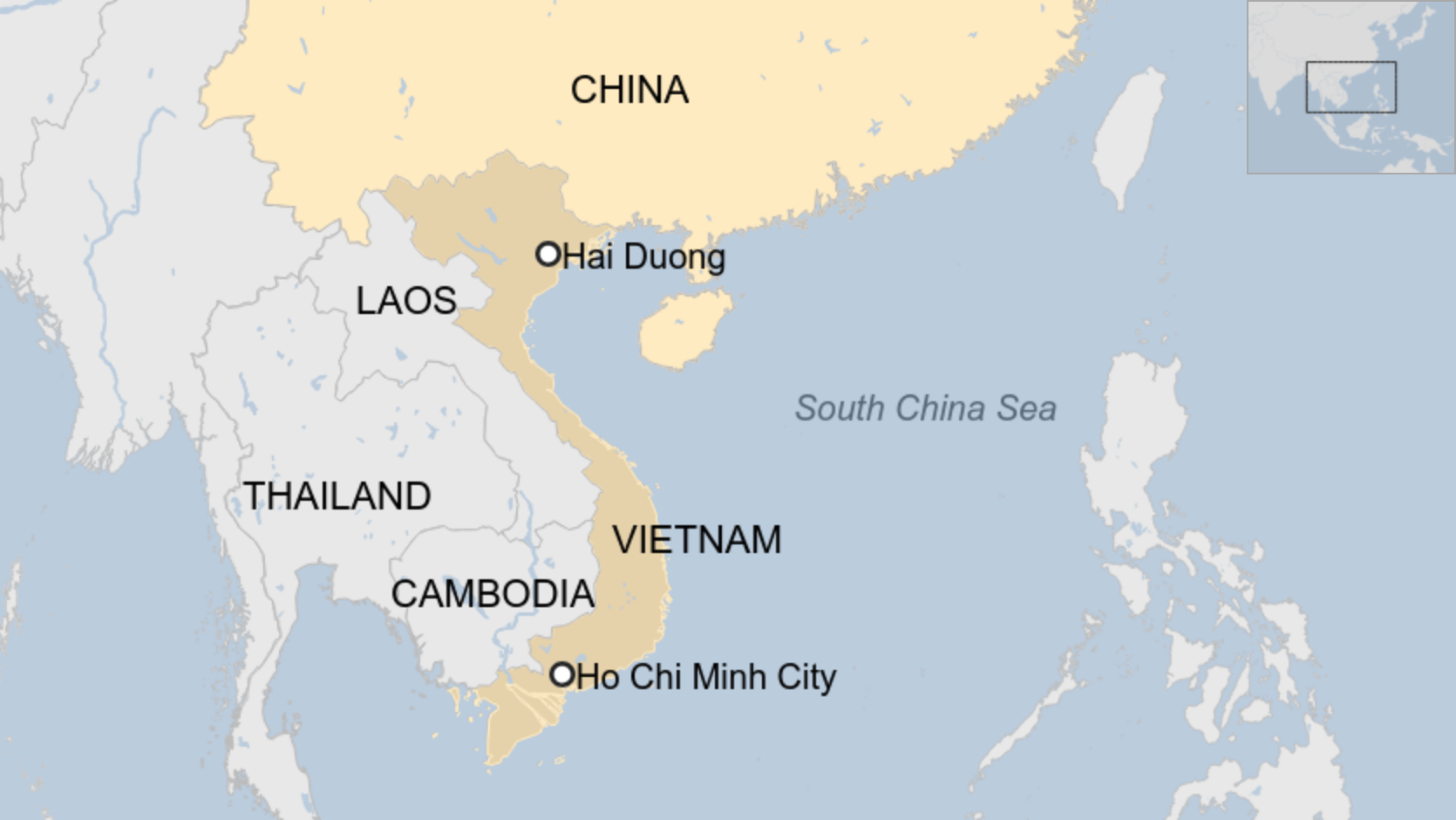
In 2018 Chinh attended a demonstration with his grandfather. He recalls his nerves in the morning and the flags of 100 people waving in the wind as they chanted, calling for freedom of religion and the release of political prisoners. After that, Chinh struggles. "I find talking about that day very difficult," he says. Chinh's grandfather was arrested and sent to prison, where he died not long after. "When we visited him, he looked very weak," Chinh says.
According to Amnesty International, jailed activists are at risk of torture and other ill-treatment. Vietnamese prisons are reported to be unsanitary, with inmates denied adequate access to medical care, clean water, and fresh air.
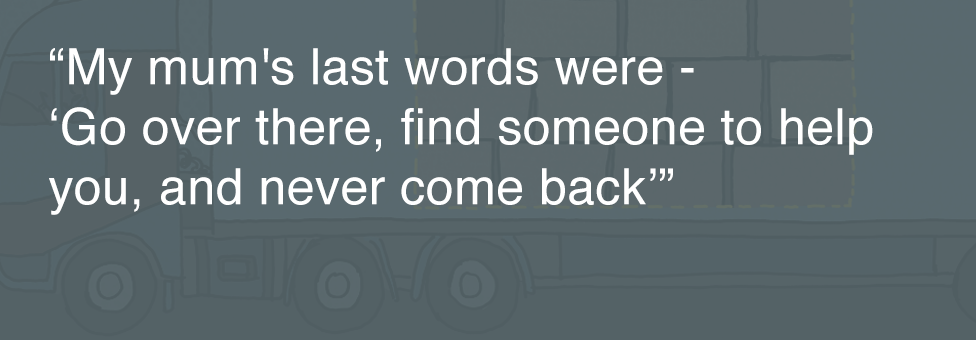
His grandfather's treatment spurred Chinh to continue protesting but in early 2019 he too was arrested, for distributing flyers. He was held in a small, narrow cell for 10 hours and questioned alone. His faith helped to get him through, he says.
"Of course, I was scared. The police would come to the cell and question me about my family and why I had anti-government literature. They shouted at me when I didn't answer. I was very scared they might hit me." In court, he wasn't allowed to defend himself, convicted, and told his sentence would start when he turned 18. His mum then raised the money to pay an agent to smuggle him to the UK.
"My mum's last words were, 'Go over there, find someone to help you, and never come back.'"
At the airport, she handed him over to two agents, who kept his passport. "We got lots of flights and stayed at people's houses until we got to France," Chinh says. He hasn't a clue what countries he passed through, apart from Malaysia and Greece.
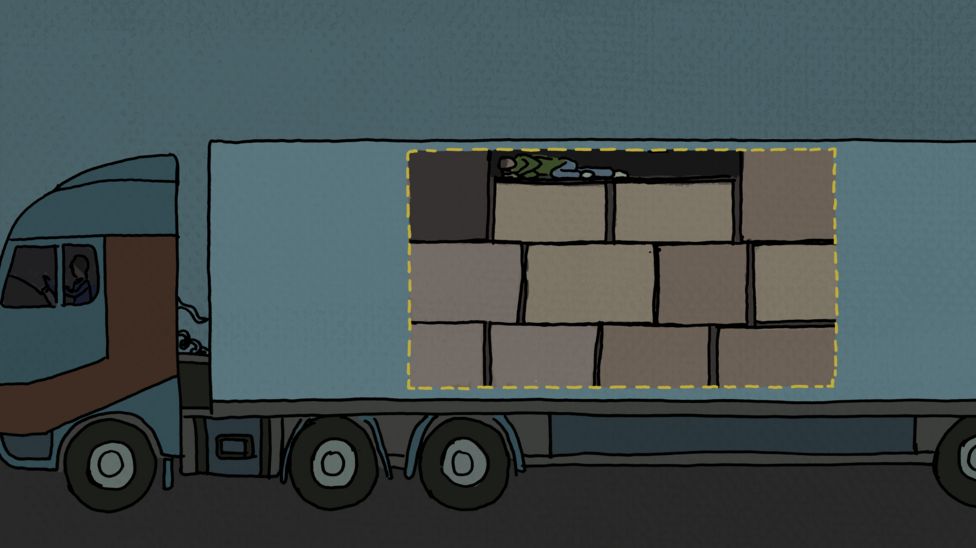
In France, one night, he was put into a lorry container. There was only one other man inside, but they didn't speak until they arrived in the UK, terrified of alerting a border official to their presence.
"It was very cold and it was very difficult to breathe, because it was a confined, small space," Chinh says. "I was lying on top of boxes piled up high on the lorry, almost to the top, so I only just had enough room to lie down. It was very dark. I just slept. I had nothing with me - no food, no water."
When the lorry finally stopped, Chinh was taken to a Vietnamese family, who fed him and gave him a bed for the night. "I can get you somewhere safe," his host said.
In the morning, Chinh was left outside the local Home Office building with a piece of paper showing his name and date of birth.
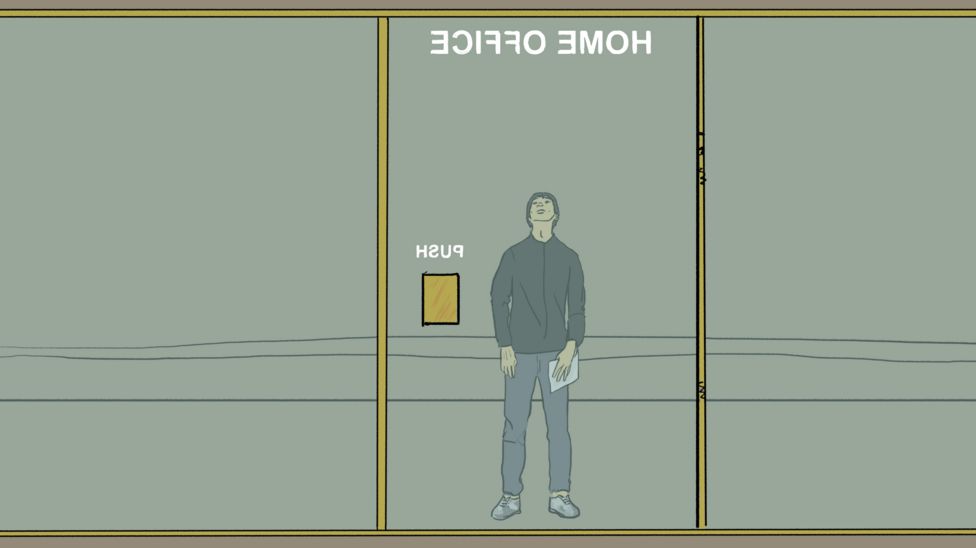
He remembers how strange he felt because he couldn't speak English. But he felt safe, he says, "because I was in the UK". The Home Office has recently granted him refugee status, which entitles him to remain in the UK for five years. Then a decision will be taken on whether he can remain indefinitely.
Chinh was lucky. His mum was able to pay his passage in advance.
When the bodies of 39 Vietnamese nationals were found in Essex last year, it was reported that these were economic migrants from some of the poorest regions in Vietnam, who had taken out loans of up to £30,000 in order to get here. Family houses had been used as security and they would have been obliged to pay off their passage once here, by working illegally in cannabis farms, nail bars and restaurants.
We may never know what the 39 people found in Essex had been promised, but it's likely that some of them would have ended up in slave-like conditions.
Jakub Sobik from Anti Slavery International says that Vietnamese people who have taken out loans to pay for their journey here are more vulnerable to being exploited.
"They start their journey believing they have paid to be smuggled in the search for a better life, but end up being victims of trafficking.
"The extent that they have to hide from the authorities makes it easy for traffickers. You are illegal and it is a criminal offence to be here. They can't risk being deported to Vietnam with huge amounts of money owed over their heads."


Some of the data in this article is drawn from BBC Briefing, a mini-series of downloadable in-depth guides to the big issues in the news, with input from academics, researchers and journalists. It is the BBC's response to audiences demanding better explanation of the facts behind the headlines.
- Download the complete BBC Briefing on immigration (11.3MB)
- What would the UK be like without immigration?
- How we made a life in Germany

While males are typically siphoned off into cannabis factories, Vietnamese women are at risk of sexual exploitation. I have read an account given by a boy of 15, who said that while working in a cannabis factory he could hear the screams of women downstairs. He believed they were being sexually abused.
A young single mum, Amy, was raped on many occasions during her journey to the UK, and again after her arrival, until a health worker identified her as a potential victim of trafficking.
She had been excited to leave the family farm with her sister back in 2013, she told the charity that eventually started looking after her in the UK.
Two men had convinced her family to send the girls abroad to earn money. There was no upfront fee, so they would need to work to pay the fare. Amy left her young son with an uncle.
She was trafficked first to a clothes factory in Russia, where she worked for 10 to 12 hours a day without pay. She slept in a small room with about 10 other people, where she was raped repeatedly by the male workers.
After two years, she and eight others were taken overland to the UK, and told that if they worked hard they would be paid. Instead, after waking up alone in the lorry that brought them across the Channel (the traffickers had left her behind for reasons that are unclear) she was sucked into a fresh world of exploitation. She ended up being forced into prostitution in the home of a Vietnamese couple, which doubled as a cannabis farm.
It was only after becoming pregnant, and getting arrested in a raid on the house, that a midwife noticed that something was wrong and referred Amy to the National Crime Agency as an apparent victim of modern slavery. Then the Salvation Army found her a place in a refuge.
Now she's a mum again, focused on doing the best for her baby.
Chinh is living with a foster family. He is working hard on his English - and even the local Northern slang - and he remains a practising Buddhist. His 18th birthday, the day he would have been jailed, is fast approaching.
Ba still suffers nightmares and flashbacks to his time in the hands of traffickers. He is waiting nervously for a decision on whether he will be granted asylum. But he recently started counselling, and day by day, under the loving care of his foster mum and dad, he is beginning to feel safer.
The names Ba, Chinh and Amy are aliases
Illustrations by Emma Russell
No comments:
Post a Comment